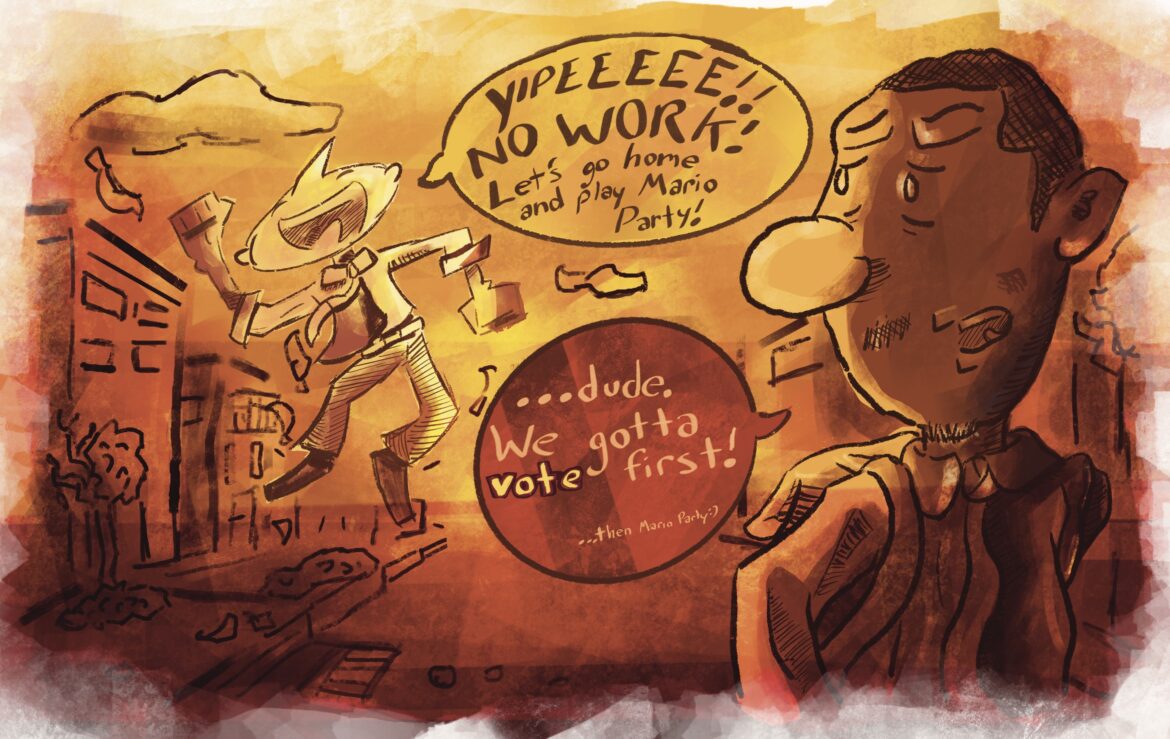If democracy depends on one thing, it is actually getting to have a say in it.
No one argues that it is not important to stand up for our ideas, which we often think of as verbalizing and congregating around them. There is, however, one opinion that no one can hold against you: who you are going to vote for. And what is a more indispensable opinion than who you trust to lead your country? If voting is the most fundamental thing we can do as citizens, it should be upheld as an obligation.
How do we perceive something as an obligation then? There is the obvious option of making it one.
Data collected by the CIA presents a total of 21 countries that have made it compulsory to vote. When the country frames it as a “responsibility,” it naturally lends itself to being a “requirement.” Additional benefits come with a mandated voting system apart from simply getting a higher number of votes. Voting parties, for instance, save money by not having to make advertisements encouraging people to get out and vote, as official United Nations Observer International IDEA argues.
At the same time, “loopholes” for getting out of voting can be found in some of these countries. There is the possibility of blank or “random” ballots turning up, impassive citizens literally “checking off” their vote to get it done with. Amidst the ballot concerns and the occasional resentful person, voting as a legal requirement proves to be effective in the long run at generating equitable election outcomes.
The relationship between Americans for rights and voting is liable to prompt a contradiction. Is having the freedom to vote more democratic than forcing people to do it? Following that logic, not voting is a way of exercising one’s right of choice.
This point is entirely correct, as having free will to do anything means it is a choice. We also believe that the individual’s actions hold great power, hence we possess a great responsibility, as someone’s uncle once wisely said.
We are then led toward a concern greater than increasing the ticket count. The larger, more philosophical goal is having an entire population that cares about the process. Voting is just one very important piece we control in that process. So yes, we should care about it.
If voting is important to our democracy’s survival then it needs to be emphasized by making it more accessible.
The past election had one of the highest voter turnout rates, but on average the United States lags behind many countries in consistent voter participation. Think-tanks chant for “more voters!” because numbers show that greater participation results in fairer elections. And in statistics, more data almost always coincides with more accurate results.
In the meantime, support systems come in all shapes and sizes for states to enact if they are not already doing so.
Early voting: States including New Jersey have scheduled more days where voters can visit the designated voting locations to cast their choice ahead of election day. Currently, there are 46 states that offer early voting in person. Alabama, New Hampshire and Mississippi are the only states that have no early voting periods.
Automatic voting enrollment: It is assumed everyone eligible is already registered to vote but that is not the case. Roughly half the states, plus the District of Columbia, have the process in place where people are automatically enrolled when they visit government offices, eliminating the need for individuals to fill it out on their own.
Election Day during the weekend: Peoples’ Saturdays are usually free or consist of lighter work so they are more likely to have time to vote. It also does not impede high school gymnasiums and corporate buildings that are otherwise in use during the work week. Many countries already have this for the reasons stated here. Tuesday in November was a conscious choice made two hundred years ago, where the majority of the country’s workers were in agriculture and farmers took their crops to the market on Wednesdays. As this is no longer the case, the decision of which day to vote should reflect the modern population.
Then there is the widely-discussed notion of making it a federal holiday.
For the countries that have election day on a weekend, that made it a national holiday to ensure all the citizens received time to go vote. Some states in the United States already made it a holiday, but that is not the same as declaring it a holiday for the whole country.
Federal holidays do not automatically grant people off from work, but it makes a statement about what we think is worth acknowledging every year. State and local laws can change to allow workers and caretakers time in their day to cast their rightful vote. Taking it a step further, the legislative branch can mandate private companies to pay their workers as they go to vote.
The bare minimum we need to increase accessibility for voting is to codify Election Day.
It deserves the status of a federal holiday because we deserve an entire day to decide who makes decisions for the next four years. Our identities and life circumstances, which otherwise act as barriers to everything else in life, should not be obstacles to the one thing that is guaranteed to us.
If not voting, what do you think is the most important thing to keeping democracy going?



